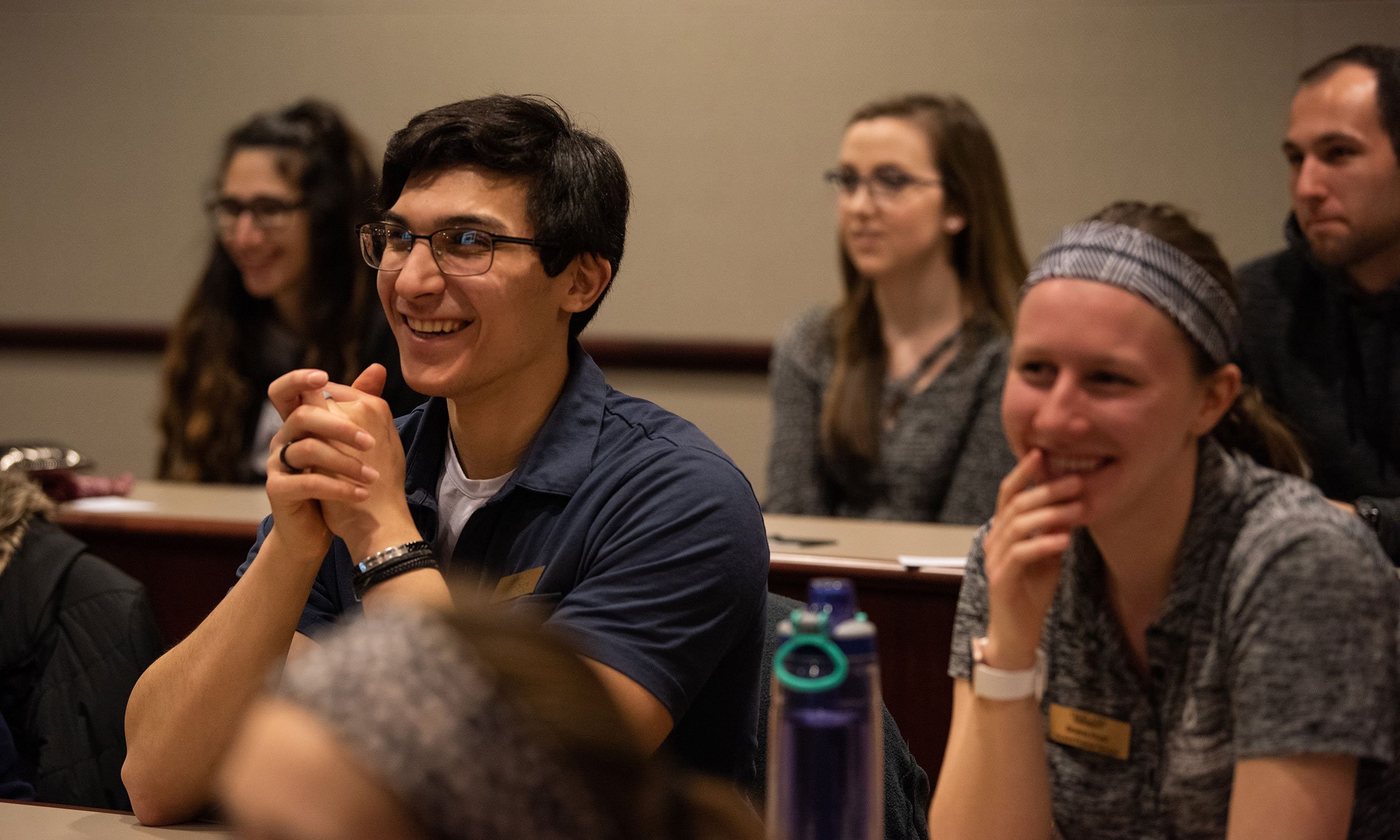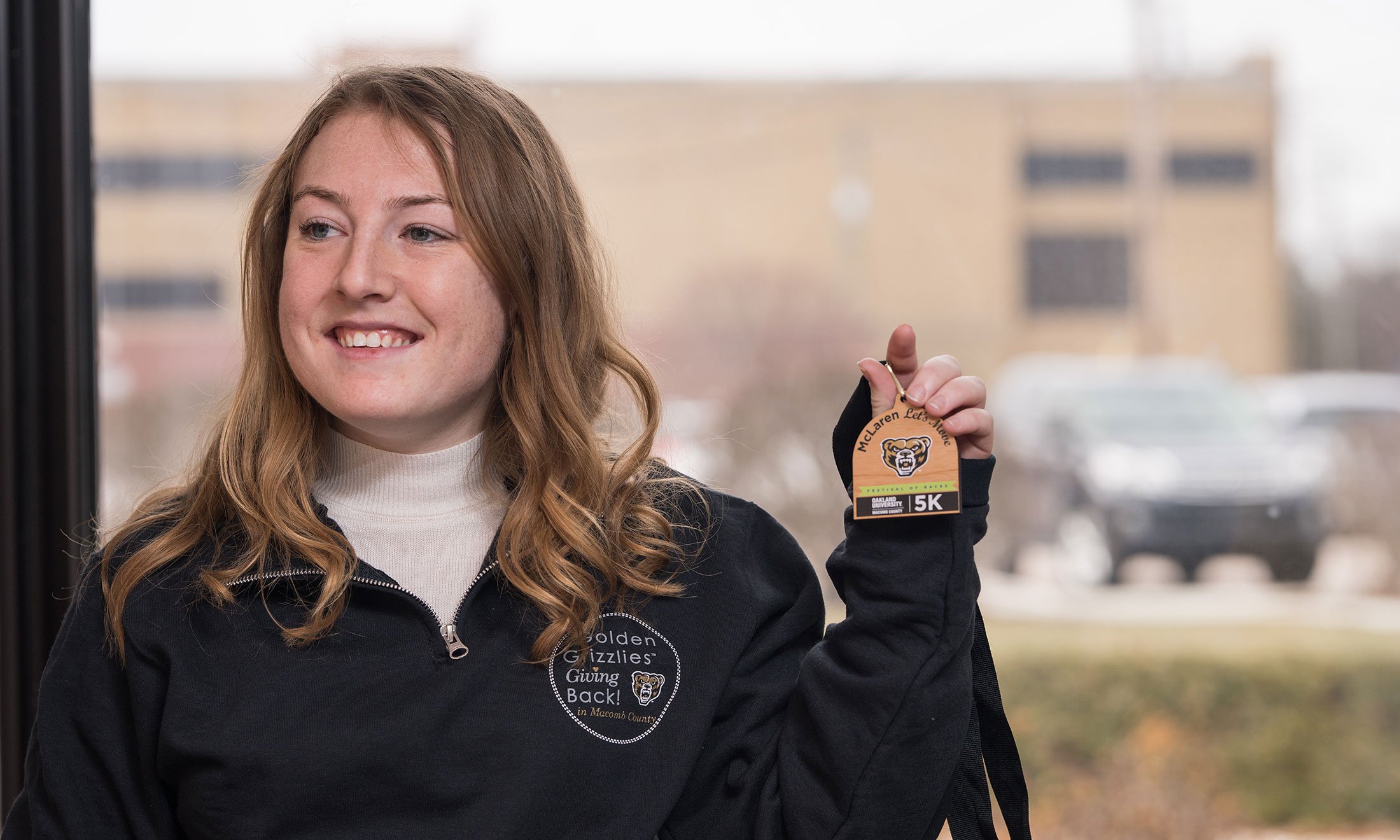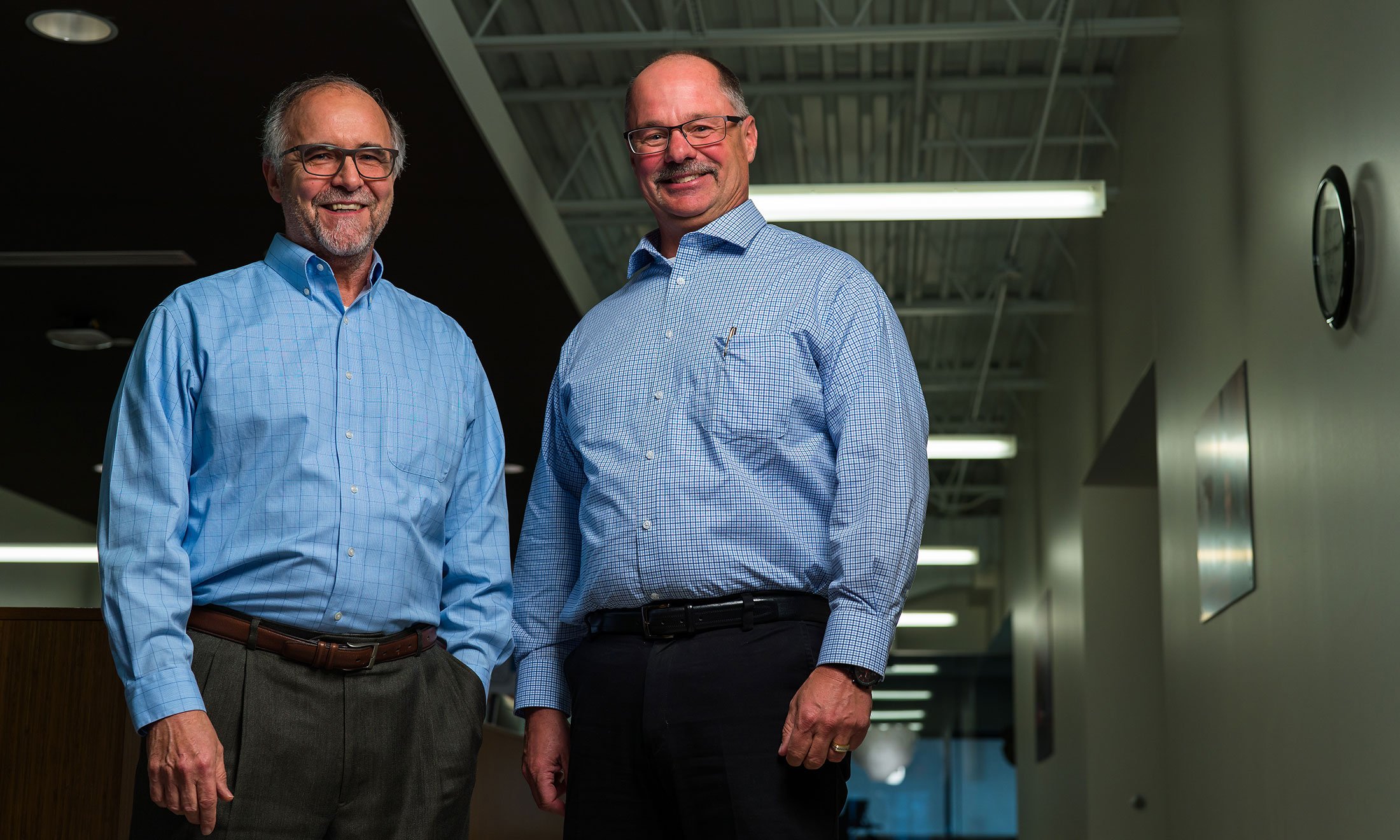Community Collaboration
OU, Macomb Community College and local EMS providers partner on interprofessional training for students
Obesity has become increasingly prevalent among patients in the American healthcare system. These “patients of size” have unique care needs for their safe handling and mobilization as well as protection from a healthcare provider’s implicit or unconscious biases.
On Friday, Feb. 21 at Macomb Community College (Macomb) in Clinton Township, more than 200 students from Oakland University’s Bachelor of Science in Nursing program, OU’s doctoral program in physical therapy, Macomb’s Emergency Medical Services (EMS) - Paramedic program and Macomb’s Emergency Medical Technician (EMT) program participated in an interprofessional education (IPE) healthcare training focused on “patients of size.”
The IPE was funded by a grant awarded to Dr. Joanna Hernandez and Dr. Kristen Munyan, assistant professors in OU’s School of Nursing, from the Midwest Interprofessional Practice, Education and Research Center. The collaborative IPE initiative was developed to educate healthcare students – in a shared learning experience – to address the unique care needs and requirements of these patients for their safe handling and mobilization. And, for these future healthcare providers to acknowledge and discard their own personal biases to improve care for these patients and to preserve their dignity.
The IPE program was facilitated by Hernandez, who also served as the project’s primary investigator, and Munyan. Others who collaborated on the IPE were:
- Dr. Sara Arena, OU assistant professor in physical therapy program
- Dr. Christopher M. Wilson, OU assistant professor of physical therapy
- Dr. Kris Thompson, OU associate professor and chair of the department of human movement science
- Daniel Media, program coordinator and professor for Macomb’s EMS program
Paramedics from local EMS providers assisted with the delivery of the IPE content. John Gallagher, EMS chief from the Clinton Township Fire Department; Joel Britt, training officer at the Roseville Fire Department and Chris Watts, education coordinator at Medstar EMS, joined Media to facilitate and guide students with EMS-focused concerns and challenges presented in the patient vignettes.
Hernandez said, “We wanted healthcare students to know how to safely handle and mobilize these patients as well as how to care for their needs. Evidence supports that improper patient handling can result in increased risks and injuries to both patients and providers.”
The IPE program was designed to present “realistic” patient vignettes, experiences and live simulations – to demonstrate the unique needs of this patient population and facilitate demonstration of team care using specialized equipment.
Hernandez said, “With today’s healthcare system becoming increasingly focused on team care, IPE training focused on these patients and their handling and mobility is an ideal approach.”
To present realistic “patients of size” vignettes and simulations, the team used equipment such as walkers, gait belts, bariatric cots, slide boards, EMS lift kits, mechanical lift systems and standing frames, hospital beds, bariatric wheelchairs, bariatric commodes and obesity suits with weight attachments.
Actors in obesity suits with weight attachments simulated patient vignettes to demonstrate safe handling techniques. After the simulations, the IPE team led discussions of appropriate care planning. There was also a presentation of respectful and unbiased patient care.
Before and at the end of the IPE, the healthcare students completed testing to assess pre- and post-student knowledge of the content.
“Educating healthcare students in an IPE setting provides an enhanced understanding of the roles and knowledge sets of the allied healthcare team,” said Hernandez. “Care is enhanced in environments where there’s a high degree of interdisciplinary cooperation so educating students in that same collaborative approach means we’re cultivating successful future healthcare practitioners.”
Hernandez added, “This IPE program is a wonderful example of OU, Macomb and County EMS providers collaborating on a project for the benefit of stakeholders in Macomb County.”
Media agreed, “This cooperative healthcare IPE provided value-added to our students’ education. It was wonderful to see the students – from such diverse backgrounds and at different levels of their educations – participate in a collegial approach to learning through the patient vignettes.”
Learn more about OU’s bachelor’s and master’s degree programs offered at our locations in Clinton Township and Mount Clemens at OU Macomb.

 August 25, 2020
August 25, 2020
 By Patti Georgevich
By Patti Georgevich








